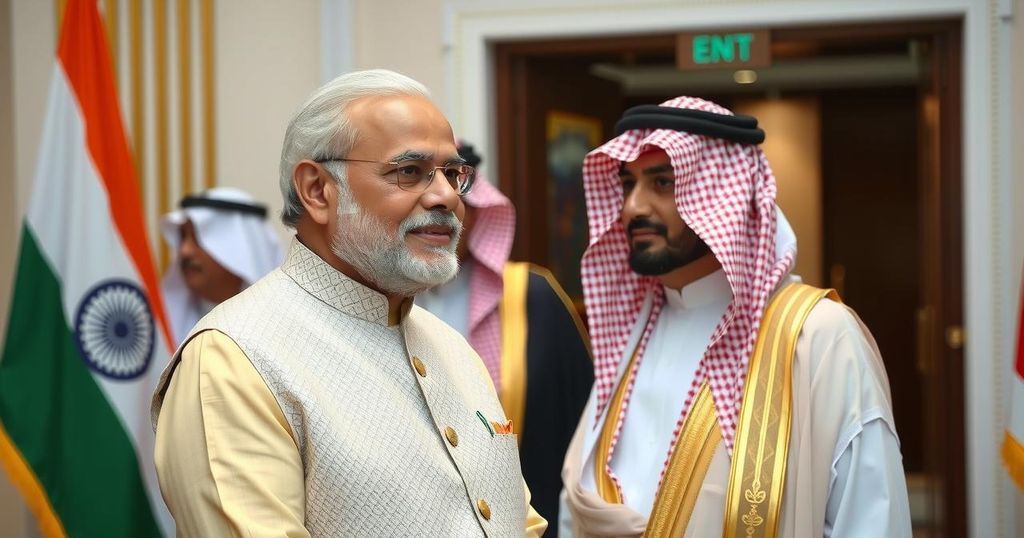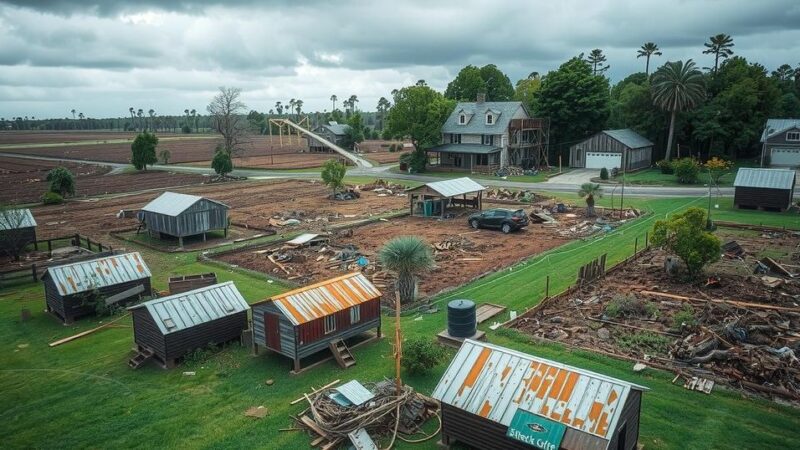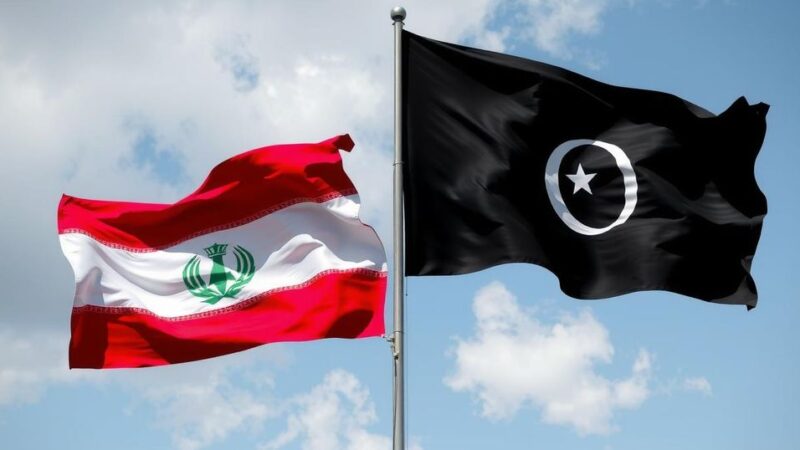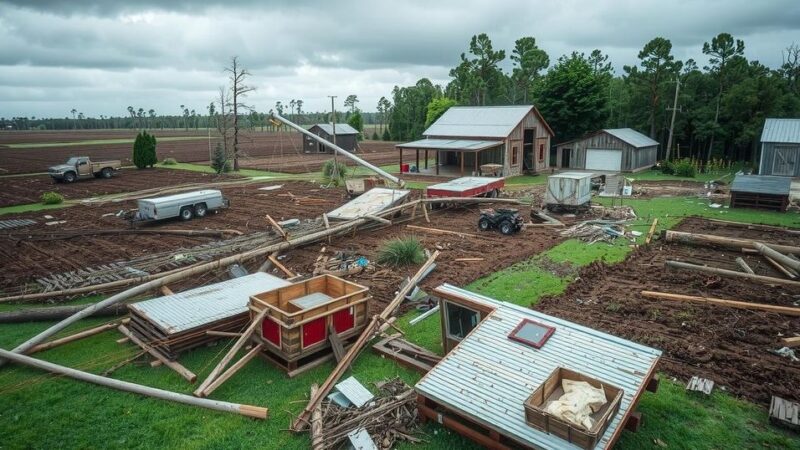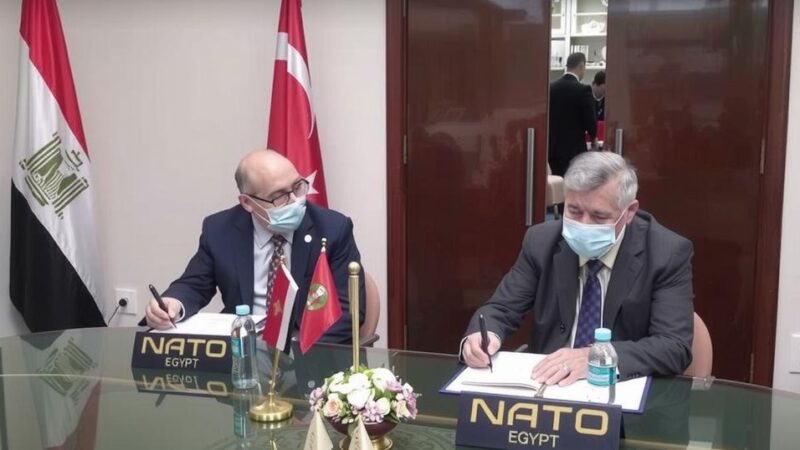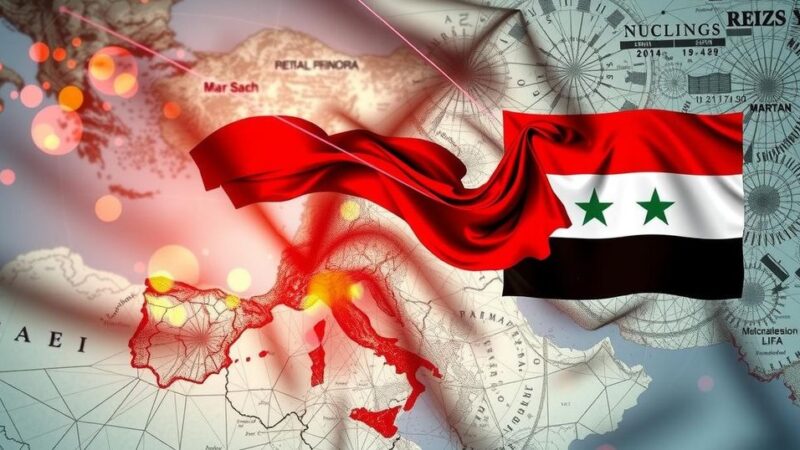Prime Minister Narendra Modi will visit Kuwait for two days, marking the first visit by an Indian Prime Minister in over 40 years. His visit will include meetings with Kuwait’s top leaders to discuss enhancing India-Kuwait relations across trade, investment, and cultural contacts, as well as addressing the Indian community and attending the Gulf Cup football tournament.
Prime Minister Narendra Modi is scheduled to embark on a two-day visit to Kuwait, marking the first such official trip by an Indian Prime Minister in over 40 years. The last visit was made by former Prime Minister Indira Gandhi in 1981. During his trip, Modi will engage in discussions with high-ranking officials, including the Amir of Kuwait, Sheikh Meshal Al-Ahmad Al-Jaber Al-Sabah, and the Crown Prince, to enhance bilateral relations across various domains such as trade, investment, and cultural exchange.
The visit, which includes an anticipated community event termed ‘Hala Modi’ at Sheikh Saad Al Abdullah Sports Complex, aims to foster a robust connection between India and its significant expatriate community in Kuwait, which comprises nearly one million individuals. The Indian government has indicated that the visit is poised to “open a new chapter” in India-Kuwait relations, reinforcing partnerships in existing areas while exploring new cooperative opportunities.
In conjunction with the bilateral dialogue, discussions are in progress regarding a potential bilateral investment treaty and a defense cooperation agreement. The visit is also expected to strengthen India’s ties with the Gulf Cooperation Council (GCC), of which Kuwait currently holds the presidency. The extensive trade relations between India and the GCC, valued at approximately USD 184.46 billion for the fiscal year 2022-23, highlight the strategic importance of this diplomatic endeavor.
India remains a key trading partner for Kuwait, with bilateral trade amounting to USD 10.47 billion in the fiscal year 2023-24. Notably, Indian exports to Kuwait rose significantly in this period, underscoring the economic interdependence of the two nations. Furthermore, Kuwait contributes 3% to India’s energy requirements as its sixth-largest crude oil supplier and has invested over USD 10 billion in the Indian market.
The relationship between India and Kuwait has a long history, with India being one of Kuwait’s most significant trading partners. This upcoming visit by Prime Minister Modi serves as a pivotal moment to elevate bilateral relations after decades of limited high-level diplomatic interactions. Additionally, Kuwait is home to a substantial Indian expatriate community, which plays a crucial role in reinforcing the cultural and economic ties between the two countries. The backdrop of this visit includes ongoing discussions about various agreements that aim to enhance cooperation in investment and defense, focusing on mutual benefits.
Prime Minister Narendra Modi’s visit to Kuwait represents a significant step towards revitalizing India-Kuwait relations after a prolonged hiatus in high-level exchanges. The bilateral discussions are expected to encompass multiple areas of mutual interest, including trade, investment, and cultural ties. The anticipated outcomes of this visit could lead to strengthened partnerships and expanded cooperation between India and Kuwait, ultimately fostering a more dynamic and robust relationship for the years ahead.
Original Source: www.hindustantimes.com

